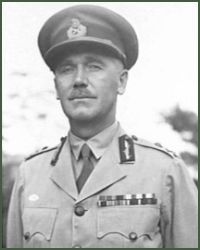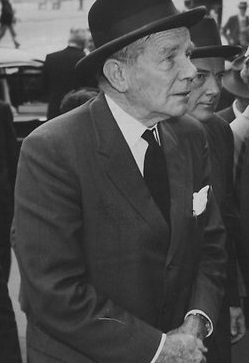‘” The Call to the People of Australia”, Remembrance Day, 1951: highlights reel’, Honest History, 11 November 2016
This Remembrance Day is the 65th anniversary of one of the stranger documents of early post-war Australia. Titled ‘The Call to the People of Australia’ or simply, ‘The Call’, it was signed by a number of prominent people, mostly senior clergymen and judges, and published to mark Remembrance Day 1951.
The Call’s main spruiker was Sir Edmund Herring (1892-1982), Rhodes Scholar, soldier in the Great War, former General, temporarily Director-General of Recruiting during the Korean War – the Battle of Kapyong had been in April 1951 – and for many years Chief Justice and Lieutenant-Governor of Victoria. He had also been a senior member of the White Guard, a secret anti-Communist organisation active in the 1920s and 30s.
There are times in the histories of peoples when those charged with high responsibilities should plainly speak their minds [The Call began]. Australia is in danger. We are in danger from abroad. We are in danger at home. We are in danger from moral and intellectual apathy, from the mortal enemies of mankind which sap the will and darken the understanding and breed evil dissensions.
 Herring during World War II (Pinterest)
Herring during World War II (Pinterest)
The Callers set out a litany of things they believed in and went on:
We call for a new effort from all Australians to advance moral standards. We ask for it from individuals in their personal and vocational relationships; in and through the lives of families; in and through all our voluntary associations: trade unions, employers’ and professional groups, the organisations of women, of Servicemen, and all the societies which our people have created to express their cultural, social, and economic interests. …
Many people and groups had helped to get us to where we were, had helped make us great.
We call on our people to remember those whose labours opened this land to the uses of mankind; those who bore and reared the children of a new nation; those who died in battle for us, bringing splendour to Australian arms; those who worked with mind and muscle for the heritage which we, please God, shall hold and enlarge for our children and their children …
And how was all of this to happen?
And that this may be so, we ask that each shall renew in himself the full meanings of the call which has inspired our people in their highest tasks and in their days of danger: “FEAR GOD, HONOUR THE KING”.’
The signatories of The Call included all six state chief justices or their representative plus the heads of the Anglican, Methodist and Presbyterian churches in Australia and Cardinal Gilroy. (Herring himself was a devout Anglican.)
Prime Minister Menzies and Opposition Leader Evatt both greeted The Call approvingly, though a couple of senior trade unionists were more sceptical. The Call was recited by the ABC Chairman, Richard Boyer, after the ABC 7 pm news broadcast on Remembrance Day. Among other reaction, the Sydney Morning Herald‘s leader writer thought The Call might ‘ruffle the complacency from which stems many of Australia’s difficulties … The team spirit, the Anzac spirit rightly glorified in war, disintegrates too easily in peace into the creed of “hang you, Jack, I’m all right.”‘
 Richard (later Sir Richard) Boyer (1891-1961) (The Australian)
Richard (later Sir Richard) Boyer (1891-1961) (The Australian)
Remembrance Day in 1952 gave Herring the chance to link The Call to the impending coronation of Elizabeth II. In 1953 he was still talking up The Call and the link to the monarchy, insisting that ‘we take our place in that great Imperial Family, to the service of which our beloved young Queen has dedicated herself’. He concluded:
Let us all unite in thanks to Almighty God for His manifold blessings and give of our best In His service, so that when our gracious Queen comes amongst us next year, we can each and all of us match her dedication with one of our own, more humble no doubt, but no less sincere.
By 1957, however, The Call had slipped from view. It did make an appearance as a document in Henry Mayer’s Australian Politics reader in 1966; us Politics I students at Monash University were puzzled by it.
Herring was also President of the Boy Scouts for 20 years and of the Board of Management of the Australian War Memorial for 15 years. In 1968, the minister responsible for the Memorial, Peter Nixon, tried (unsuccessfully) to persuade the then 76-year-old Herring that the Board needed broader representation.
In 1967, Herring presented the author of this note with the Queen’s Scout badge. The author’s career in the Scouts was fading by then but Herring still seemed chipper enough. He died in his 90th year in 1982. An island in the Yarra River was named after him.


Leave a Reply
You must be logged in to post a comment.